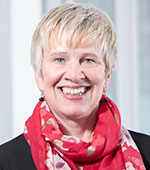Holiday clubs would help the three million children in the UK who are at risk of holiday hunger, say Margaret A Defeyter, Paul B Stretesky, and Michael A Long
Children all over the UK will be on their half term break over this week and the next. Sadly, many of them will experience what politicians and the media have dubbed “holiday hunger,” a term used to describe the food insecurity associated with school holidays.
Nearly one million pupils who receive free school meals during the school term are at risk of holiday hunger. An additional two million pupils who do not receive free school meals, but whose parents experience in-work poverty, are also at risk of holiday hunger. This form of seasonal hunger does not only affect pupils, but entire households. For instance, parents on low incomes often say that they skip meals during the school holidays so their children can eat.
Holiday hunger is an under-researched phenomena; it is a contemporary term, but policy makers have been concerned about food insecurity during school holidays since the start of the 20th century. On 27 March 1914, for example, Bradford MP Fred Jowett proposed a bill to “enable meals to be provided for underfed children during school holidays.” He became concerned about the problem after consulting with a school medical officer who observed a decrease in children’s weight during the school holidays. Today, researchers continue to emphasise the “tendency for children to be unable to access an adequate supply of nutritious food during the school holidays.”
One intervention that has been proposed to solve this is holiday clubs, which take place locally and are a bottom up approach to poverty. The need for them has sharpened with recent reforms to the benefits system and cuts to local authority funding. As a result, a range of organisations, including third sector organisations operating on a smaller scale, now deliver holiday provision to low income families across the UK.
A sociological examination of these programmes suggests that they do more than reduce food insecurity by feeding children and educating families about food preparation and nutrition. Clubs provide numerous additional resources that improve wellbeing for parents, children, volunteers, and staff. For instance, research suggests that clubs provide children with physical, cultural, and educational activities and may help them prepare to return to school. Clubs also provide children with a safe place to be during the summer.
For parents, holiday clubs aid in caregiving and bolster household financial resources by allowing them to continue to honour their caregiving and work commitments through the school holidays. These clubs also signpost parents to resources and other community services, such as healthcare and housing advice, and foster a sense of belonging among parents. Finally, the staff and volunteers who administer these clubs have observed improvements in children’s behaviour and ability to engage in activities; a strengthening of the relationships between children and their parents, as well as friendships with their peers; and an equalisation of children’s readiness to return to school.
Today, the Department of Health and the Department for Education (DfE) fund a number of programmes across England to support the nutritional needs of school aged children during school term time, such as breakfast clubs. These breakfast clubs have been found to have a positive impact on children’s nutritional intake and educational attainment, as well as positive social benefits. However, these programmes only exist during term time and currently there is no England-wide state funding for holiday provision.
The DfE recently launched a competitive bidding process to invest more than £9M across 11 geographic areas to help feed and provide activities to 50 000 children during the school summer holidays through the Holiday Activities and Food Programme. We applaud this investment, but would stress that it is not sufficient given the estimated three million children at risk of food insecurity across all of the school holidays. Indeed, the majority of holiday provision remains unregulated and patchy, especially when mapped against multiple social deprivation indices.
To address this variation and the inequalities in access to holiday provision, we’d suggest that there are two ways forward. Firstly, prior qualitative research has emphasised that to reduce the stigma that holiday club provision is targeting the poor it should be available on a universal basis, regardless of individual children’s circumstances.
Secondly, the fact that the DfE’s Holiday Activities and Food Programme is not universal means there are “winners” and “losers” from this scheme. In our opinion, this approach introduces an additional layer of inequality for those disadvantaged families with children who are unlucky enough to live in a community that was not included in the programme.
We appeal to the government to address the root causes of poverty. Yet in the meantime, it is vital that they invest equally in communities to offer local holiday programmes, which run during all school holidays and not just the summer.
 Margaret A Defeyter is a professor in the Department of Social Work, Education and Community Wellbeing and director of the Healthy Living Lab at Northumbria University, UK where she researches food insecurity and school feeding programmes.
Margaret A Defeyter is a professor in the Department of Social Work, Education and Community Wellbeing and director of the Healthy Living Lab at Northumbria University, UK where she researches food insecurity and school feeding programmes.
Competing interests: I have read and understood BMJ policy on declaration of interests and declare the following interests: None.
 Paul B Stretesky is a professor of social sciences and associate director of the Healthy Living Lab at Northumbria University, UK where he researches food insecurity and environmental harm.
Paul B Stretesky is a professor of social sciences and associate director of the Healthy Living Lab at Northumbria University, UK where he researches food insecurity and environmental harm.
Competing interests: I have read and understood BMJ policy on declaration of interests and declare the following interests: None.
 Michael A Long is an associate professor in the Department of Sociology at Oklahoma State University, USA where he works on issues of food insecurity and environmental harm.
Michael A Long is an associate professor in the Department of Sociology at Oklahoma State University, USA where he works on issues of food insecurity and environmental harm.
Competing interests: I have read and understood BMJ policy on declaration of interests and declare the following interests: None.
